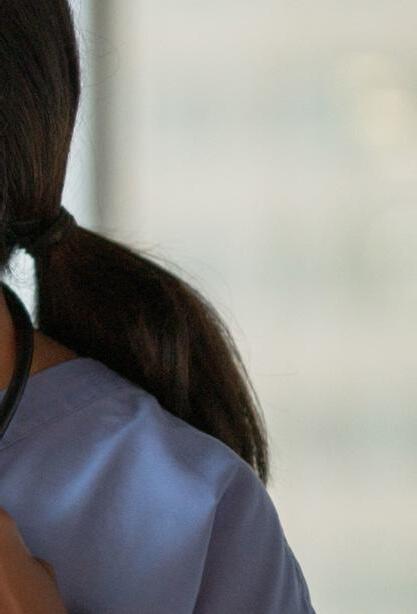




Inthe news we are reminded daily of the challenges within our health care system as we continue to deal with the aftermath of the pandemic. Human health resource shortages appear to be the number one issue. The stress is palpable in departments across the province and the country.
Michener CE is actively working to relieve some of this stress. We are offering professional development courses and programs for new health leaders, tutorials, and refresher courses for those who may be returning to a field, bridging programs for new Canadians with international experience, as well as mental health and specialty nursing programs, and micro credentials that can deliver immediate skills and competencies.
Our focus for 2023-2024 is to support our health care professionals and professions with education that fits within busy schedules, meets the needs within the field, and provides the skills needed right now.

Michener CE will continue to work collaboratively with our health care partners and our learners to provide the education that is needed today. Michener is the first educational institution that is integrated into a hospital network, and we plan to continue to build upon this relationship for all the value and opportunity that it provides.
An exciting year is ahead of us, and the CE team is ready and willing to share educational opportunities, develop new ideas, and plan for what will come next. Thank you for your continued support. We cannot do our job without you!
Sincerely,
Jane Mattson Director, Continuing Education The Michener Institute of Education at UHN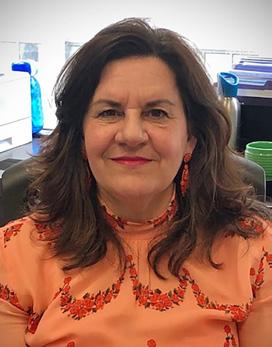
Introducing our newest Continuing Education course offerings:

COURSES
HGCE110 Human Genetics
MGCE110 Molecular Genetics
HECE110 The Health Care Ecosystem: Behind the Scenes
DCHS100 Difficult Conversations in Health Literate Care Simulations
CHCP800 Clinical Pharmacology for Chiropodists and Podiatrists
UCDF110 Introduction to Clinical Molecular Diagnostic Testing & Viruses
MTMC100 Micropipette Techniques
MHNU100 Mental Health Nursing Certificate Program
NENU120 Foundations in Nephrology Nursing
IRCM100 Integrated Remote Care Monitoring
CCNF100 Critical Care Nursing Boot Camp
FPP110 Foundations of Psychedelic Psychotherapy
EVLP110 Ex-vivo Lung Perfusion
CUSTOMIZED PROGRAMMING
CCNU110 Acute Care Nursing Certificate
CCNU120 Critical Care Nursing Certificate
DED1400 Diabetes Educator
MELA & CERTIFICATE PROGRAMS
LANG100 MELA (English Language Assessment)

Withcurriculum specialists, instructional designers, and subject matter experts we create accessible course content that leverages different learning methods. You can register for an individual course or courses that are part of a certificate program, offered online, in-person, and in some cases, with flexible timelines.
Facilitated courses start at specific times throughout the year and usually run for about 12 weeks, or one semester. Online facilitators help you learn throughout the course from week to week and provide various assessment components to help solidify your learning. This includes many specialty courses, certificate courses, and webinars.
Self-study courses are open for registration any time throughout the year. Complete a course at your own pace and within one year of registration. This flexible option gives you control over how long you spend learning online. Tutors are available virtually to answer your questions and guide you through the course. At Michener, most self-study options are online.
Virtual workshops allow for synchronous learning where participants can interact with each other and facilitators in real-time.
Some courses are offered exclusively in a classroom or require hands-on, simulated practice to ensure you acquire the knowledge and skills you need to be successful. Workshop examples include courses like Advanced Cardiovascular Life Support. Other topics explored include conflict resolution and cultural humility.

Hybrid courses are designed to deliver content online and have in-person or classroom components to reinforce learning. Classroom-based instruction paired with online learning also has the added benefit of meeting your peers and instructors face-to-face.
Our Continuing Education certificate programs span different areas in health care that will give you an edge in furthering your career.
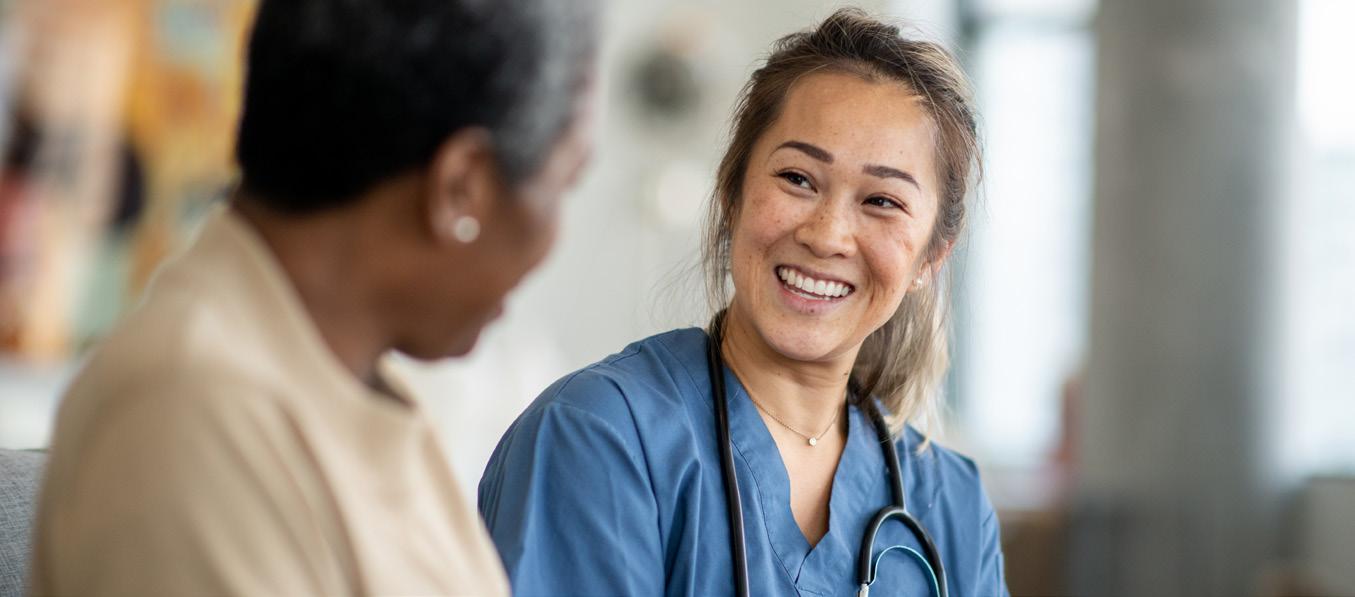
Our certificate programs are available online and facilitated by instructors with years of experience practicing in their respective fields, bringing you education that is relevant and applicable.
These programs offer facilitated online learning that meet the needs of your busy schedule as an adult learner and allow you to build relationships with other professionals across Ontario, Canada, and the world. Many of the courses can be taken individually or combined to meet the requirements for completion of a certificate program.
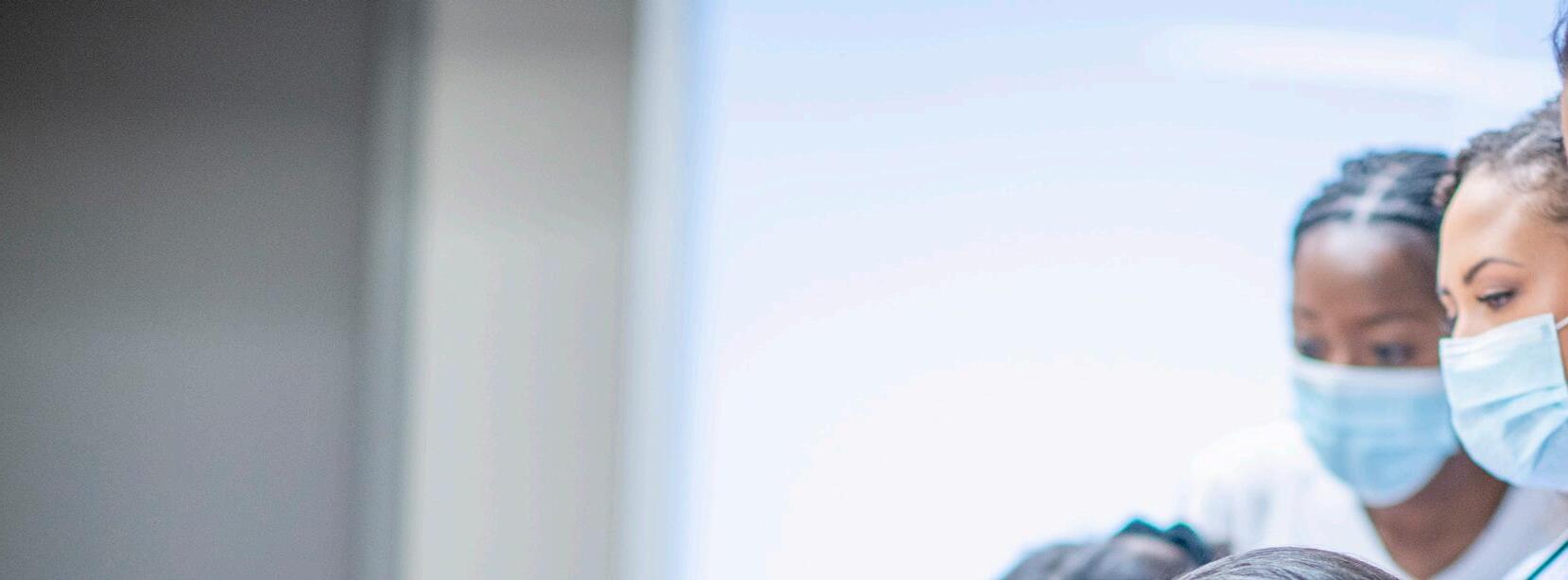
The Acute Care and Critical Care Nursing Programs at Michener were developed through a unique collaboration between the Continuing Education department and the Practice-Based Education department at the University Health Network. The programs were developed by seasoned acute care and critical care nurses in concert with a team of education specialists and leaders to deliver a learning product that is modern, relevant, and reflective of current practice needs.
These programs are taught using a hybrid and spiraled curriculum, delivering core content about body systems through a series of online modules. For each body system, learners are guided through online knowledge components, which is followed by a clinical practicum, and finally a classroom-based session where the integration of knowledge and practice is facilitated by the course instructor. This approach helps learners to continue building their knowledge and skills throughout the course and sets learners up for optimal success in their professional practice.
Both Acute Care and Critical Care programs have been developed in accordance with the Ministry of Training, Colleges and University’s Registered Nurse Critical Care Nursing Program Standard as well as Critical Care Services Ontario’s Standards for Critical Care Nursing in Ontario (2018)
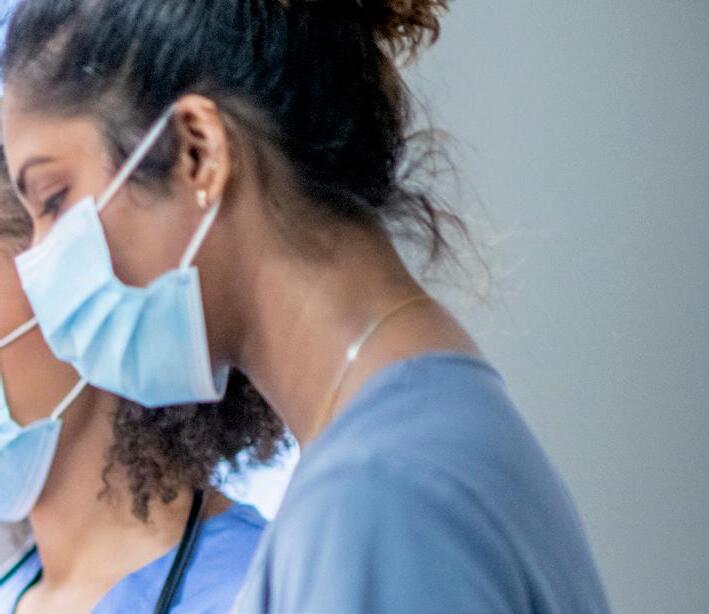
CCNU110 Acute Care Nursing Certificate
CCNU120 Critical Care Nursing Certificate
Both courses are available only through sponsorship on a contract basis with hospitals. Email ce@michener.ca for more information.
The Artificial Intelligence (AI) certificate program will introduce students to the discipline of AI and how it is applied in the health care environment. Students will acquire data science and analytic skills, learn how to implement AI solutions, and participate in creating an AI solution. Online delivery provides a pathway alternative that concludes with an AI project and/or solution. There are four courses to be completed in this program.
Courses include:
AINT111 AI Fundamentals
AINT120 AI and Data Science
AINT130 AI and Developing in Health Care Environment (path 1) or
AINT131 Managing AI Implementations (path 2)
AINT140 AI Final Project
* Successful completion of the AI Certificate Program assures a direct path to Michener’s Digital Health and Data Analytics Advanced Diploma program.
The legalization of cannabis in Canada has raised interest from the health care community about cannabis use in the treatment of disease. With this interest, and an increase in the prescription of medical cannabis, comes the need to educate health professionals on how to properly teach patients about the safe use and application of cannabis.
This 12-week course will provide health care professionals with the in-depth knowledge they need to understand medical cannabis use. Through online activities, learners will explore the below topics which will help them understand how to educate their patients and what essential information they need:

• The History of Cannabis and the Current Landscape
• The Science of Cannabis
• Medical Cannabis Education
• Cannabis for Medical Purposes
• Dosing Medicinal Cannabis
• Adverse Effects of Cannabis
• The Legalities of Cannabis
Clinical Management offers learners the opportunity to build skills essential to working as a functional manager in a health care setting. Facilitated discussions, wiki posts, interprofessional activities and collaborative, synchronous meetings are a few ways to learn with and from your colleagues and instructors. There are six online courses in this program. Choose any four of the below courses to meet the program requirements.
Courses include:
CMC110 Leading and Managing People
CMC120 Strategic and Operational Planning and Review
CMC130 Managing Quality and Patient Safety in Heatlh Care
CMC140 Managing Finances
CMC150 Project Management
HECE110 The Heatlh Care Ecosytem: Behind the Scenes
Do you have an interest in quality and compliance with regulations set by the International Standards Organization (ISO)? The five required courses in this certificate program offer participants multi-professional learning opportunities, facilitated discussions, and practical activities with tools to implement quality management in your own organization. ISO compliance is an international expectation and requirement in many industries beyond health care.
Courses include:
FSQM110 Fundamentals of Leadership Effectiveness*
INQM110 Quality Management Systems (QMS): Introduction
RMQM110 QMS: Resource Management
PMQM110 QMS: Process Management
MEQM110 QMS: Measurement, Analysis and Improvement
* Also core to the Leadership in Health Care Certificate. Qualifies for 0.5 de Souza Designation credits. For more information, please visit www.desouzainstitute.com/designations
Clinical Research professionals assist in the design, preparation, planning, implementation, and monitoring of clinical trials to ensure they adhere to regulations, good clinical practices, and ethical standards. Case studies, discussion posts, video blogs, and group activities provide a means for students to connect and learn from one another. Clinical research is an expanding field with many opportunities for trained professionals. This certificate consists of six required courses.
Required Courses:
CRCR130 Principles of Clinical Research I
ETCR120 Ethical Issues in Clinical Research
SCCR240 Elements of Clinical Study Coordination

MCCR140 Monitoring Clinical Trials
RMCR110 Research Methodology and Biostatistics
QCCR110 Quality and Compliance in Clinical Research
“I was able to directly apply what I learned into both my day-to-day routine work as well as longerterm strategic planning initiatives. I recommend this course to any health care professional who wants to lead their team and their organization to success through effective change management.”
- Natalie F., Fundamentals of Leadership Effectiveness (FSQM110) - Student, 2022
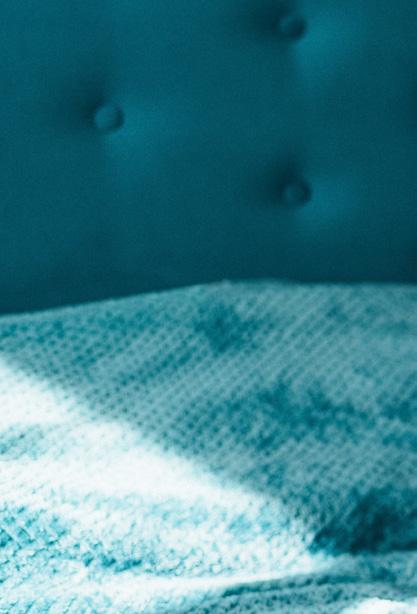
The digital age is here, and changing technologies are fueling a growing demand for qualified Imaging Informatics health care professionals. In this certificate program, you will learn from experienced and practicing imaging informatics professionals about designing networks, managing databases, and acquiring and integrating technologies. This certificate consists of four facilitated online courses.
Courses include:
GEII110 Work and Information Flow
NTII120 Networks and Infrastructure
PLII130 Planning the Transition
ENII140 Sustaining the Environment
These courses are targeted to individuals who are ready to explore leadership fundamentals and organizational effectiveness in health care, and who are willing to challenge themselves by building their capacity for leading people, processes, and change. Students can learn from the experiences of their instructors and peers through a variety of teaching approaches. Achieving a certificate requires completion of all four facilitated online courses below.
Courses include:
FSQM110 Fundamentals of Leadership Effectiveness*
ETHL110 Ethical Leadership in Health Care
OEHL110 Organizational Effectiveness for Health Care Leaders
ADHL110 Advanced Practices for Leadership in Health Care

* Also a core course for the Management Certificate - a great opportunity for dual certification. This course qualifies for 1 credit under the Developing Professional Practice and Leadership domain of a de Souza Designation. For more information, please visit www.desouzainstitute.com/ designations. To claim your credit, contact the de Souza Institute.
“As a future health care leader, I was exposed to the transformational aspect of leadership – how to be a visionary and lead a positive change.”
- Advanced Practices for Leadership in Health Care (ADHL110) - Student, 2022
Accordingto Diabetes Canada, 11 million Canadians are living with diabetes or prediabetes. Given the high prevalence and its impact on the health care system, effective patient education is an important factor in managing this disease. Continuing Education at Michener offers a variety of online courses for those who work with patients, clients, or loved ones living with Type 1 or Type 2 diabetes.
All courses are current to the 2018 Diabetes Canada Clinical Practice Guidelines and have incorporated the 2020 and 2021 Guidelines Updates.


Delivered online and led by Certified Diabetes Educators, the Diabetes Educator Certificate Program offers flexible and varied learning methods with objectives drawn from the International Diabetes Federation’s International Standards for the Education of Diabetes Health Professionals. The program will provide learners with the opportunity to enhance their knowledge about diabetes. In addition, learners will explore the most effective means to educate patientswhether new to diabetes education or working towards certification or credits through the Canadian Diabetes Educator Certification Board.
This program is eligible for transfer credit in Athabasca University’s Post-LPN Bachelor of Nursing and Post-RN Bachelor of Nursing programs.
The Diabetes Educator Certificate Program consists of one course made up of six modules:
• Teaching and Learning
• Managing Diabetes
• Complications of Diabetes
• Pathophysiology
• Antihyperglycemic Agents
• Special Populations and Issues
In addition to the Certificate Program, there are Diabetes Specialty Courses focused on special topics and/or populations.

DE801 Diabetes Management in Children and Adolecents
DE802 Diabetes Management in Pregnancy

DE803 Engaging Patients in Managing Chronic Illness
DE804 Diabetes Management in Older Adults
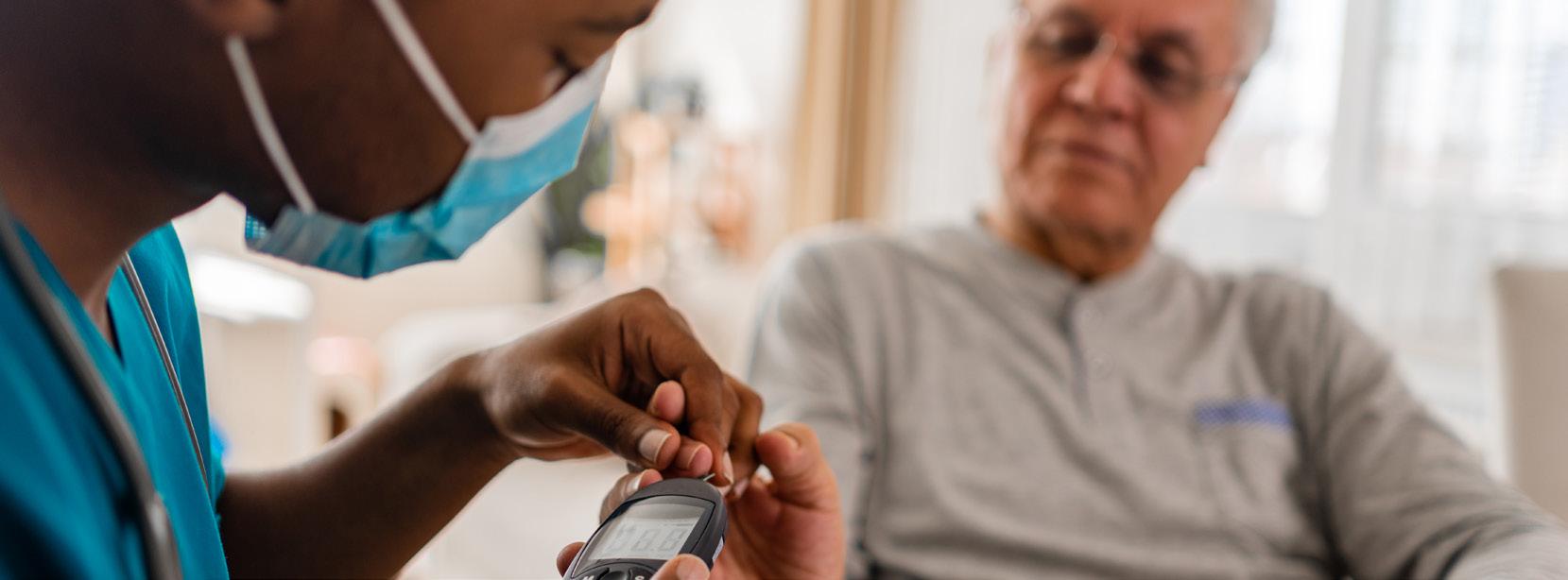
DE806 Diabetes 101: Introduction to Diabetes
DE807 Intensive Insulin Management
DE808 Foundations of Foot Management in Diabetes: A Holistic Approach
“The tools and strategies I learned at Michener – such as how to properly communicate with patients in a way that allows them to understand information, to empower them to self-manage their diabetes, and to build effective therapeutic relationships – was invaluable to me.”
ContinuingEducation offers a variety of workshop-based and online courses for those who work in primary and critical care environments. These course options, including Advanced Life Support and Adult Physical Assessment, use team, case, and simulation-based learning to build these critical skills for a wide range of health professionals.

These simulation-based courses delivered live by expert facilitators with years of applied experience will help you maintain your credentials and the skills crucial to providing emergency and critical care to patients. Some of these courses, including Advanced Cardiovascular Life Support and Basic Life Support, are delivered using the standards outlined by the Heart and Stroke Foundation †
RS810 Advanced Cardiovascular Life Support (ACLS)†
RS831 Advanced Cardiovascular Life Support Provider – Basic Life Support Renewal Dual Certification †
RS812 Advanced Cardiovascular Life Support (ACLS) Recertification†
RS833 Advanced Cardiovascular Life Support (ACLS) Recertification and Basic Life Support Renewal Dual Certification †
CR802 Basic Life Support (CPR)†
CR803 Basic Life Support (CPR) Renewal †
NE800 Neonatal Resuscitation (NRP)
RS814 Pediatric Advanced Life Support (PALS)†
RS832 Pediatric Advanced Life Support (PALS)/Basic Life Support
Renewal Dual Certification†
RS816 Pediatric Advanced Life Support (PALS) Recertification†
RS834 Pediatric Advanced Life Support (PALS) Recertification/Basic Life Support
Renewal Dual Certification†
RS827 Pediatric Emergency Assessment, Recognition, and Stabilization (PEARS)†
NE514 Practical Guide for Neonatal Intubation
NE502 The S.T.A.B.L.E. Transport Program

These courses are targeted to a variety of health professionals including nurses and personal support workers. Some are facilitated in person, some online, and others are self-study. Many courses, including Cardiac Stress Testing, can be offered onsite at your organization to learn with and from your peers.
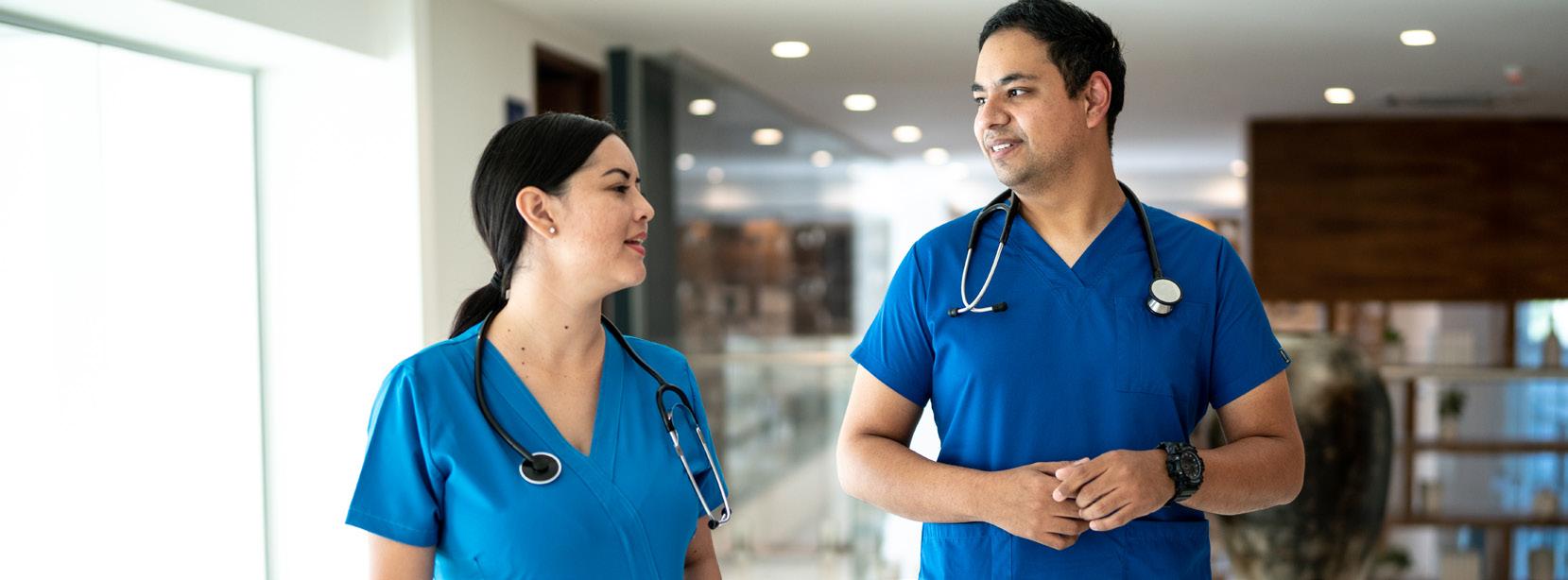
EK816 12-Lead ECG Interpretation
APA100 Adult Physical Assessment
BSTR110 Basic Spirometry Training
EK703 Cardiac Rhythm Interpretation
EK817 Cardiac Stress Testing (recognized for CAMRT credits)
CCNF100 Critical Care Nursing Boot Camp
NENU120 Foundations in Nephrology Nursing
IRCM100 Integrated Remote Care Monitoring
MHNU100 Mental Health Nursing Certificate Program
MHFA120 Mental Health First Aid - Standard
PC723 Pediatric Physical Assessment
EK702 Performing 12 & 15 Lead ECGs
RS823 Pulmonary Function Testing
SAWA100 Situational Awareness and Verbal De-escalation
* This course qualifies for 0.5 credits under the Patient Teaching and Coaching domain of a de Souza Designation. For more information, please visit www.desouzainstitute.com/designations To claim your credit, contact the de Souza Institute.
“Both instructors were excellent. Very knowledgeable and communicated in an effective manner.”
- Pediatric Cardiac Life Support participant
Amicro credential is a type of certification that demonstrates achievement of a skill that has been formally assessed in an educational environment. Micro credentials are meant to be a fast and flexible way to certify your achievement of skills and competencies. These are designed for people and organizations to integrate critical skills in the workplace.
Micro credentials can only be issued for competencies that address areas of need and growth in the health care system. They must be developed with the endorsement of industry and with the intention of preparing professionals to engage in today’s workforce.
Michener Continuing Education can review and issue micro credentials. We are excited to relaunch many of our current offerings as micro credentials, and introduce new offerings that meet the micro credential framework.

VP804 Venipuncture Techniques
RA815 Contrast Injection for Radiological Technologists

IV500 IV Insertion and Maintenance
IRCM100 Integrated Remote Care Monitoring

PIIR110 PICC Insertion: A Comprehensive Guide
EK702 Performing 12 & 15 Lead ECGs
EVLP110 Ex-vivo Lung Perfusion
COMING SOON! Advanced Mechanical Ventilation
Inaddition to our certificate programs, you can choose a variety of special interest courses that are applicable to a wide range of health care professionals. Whether you are looking to take a refresher course in Medical Laboratory Sciences, explore special topics like artificial intelligence and medical cannabis, or build basic skills in clinical education and plain language, Michener Continuing Education offers a wide range of facilitated self-study and in-class courses to help you build your professional capacity in niche areas.
Competency profiles and changes to scope of practice can occur rapidly as health sciences and technologies advance. Are you ready? The self-directed courses in Medical Laboratory Sciences below are offered with the flexibility to be completed at your own pace and offer you the ability to stay up to date with practice. The courses are approved by the Canadian Society for Medical Laboratory Science (CSMLS) and/or the College of Medical Laboratory Technologists of Ontario (CMLTO).
ML818 Anatomical Pathology MIS and Grossing Guidelines: Complexities 0-3
ML819 Anatomical Pathology MIS and Grossing Guidelines: Complexities 4-5
MB801 Basic Molecular Biology Techniques for Health Care Professionals
MB800 Basic Molecular Biology Theory for Health Care Professionals
PD807 Clinical Behavioural Sciences**
GK800 Medical Terminology
ML814 Pathology I
ML815 Pathology II
AP601 Anatomy and Physiology for Health Care Professionals*
AP807 Gross Human Anatomy and Physiology*
MGCE100 Molecular Genetics*
HGCE100 Human Genetics*
UCDF110 Introduction to Clinical Molecular Diagnostic Testing & Viruses*
* Take these courses to help meet specific prerequisites for Michener full-time programs – Diagnostic Cytology, Cardiovascular Perfusion, Ultrasound, and Genetics Technology
** Part of the Michener/Mohawk accreditated MLA/T program.

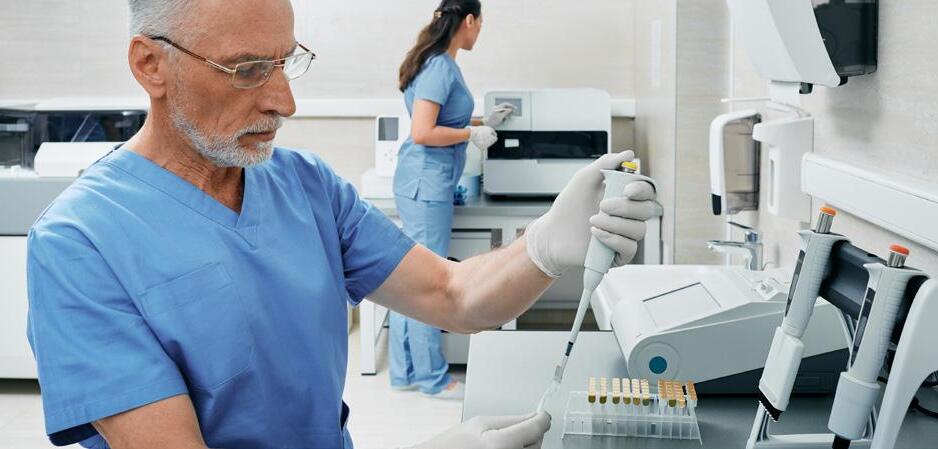
The courses below are approved by the Canadian Society for Medical Laboratory Science (CSMLS) and/or the College of Medical Laboratory Technologists of Ontario (CMLTO), and are ideal for Medical Laboratory Technologists who want to refresh their knowledge as they consider a different area of practice. These courses also support those meeting Prior Learning Assessment (PLA) recommendations and for those seeking Canadian certification.

CLLT151 Clinical Experience I for Laboratory Technicians**
CLLT140 Clinical Skills Workshop for Laboratory Technicians**
CY611 Gynecological Cytology
CC859 Tutorials in Clinical Chemistry: I
CC860 Tutorials in Clinical Chemistry: II
CC861 Tutorials in Clinical Chemistry: III
HE837 Tutorials in Hematology and Coagulation
HI901 Tutorials in Histology
MI905 Tutorials in Microbiology
IH903 Tutorials in Transfusion Science
ML7110 Medical Laboratory Assistant/Technician Exam Preparation
ML7111 Medical Laboratory Sciences National Certification Exam Preparation
PML110 Professional Practice in the Medical Laboratory
VP804 Venipuncture Techniques
MTMC100 Micropipette Techniques
** Part of the Michener/Mohawk accredited MLA/T program.
The Radiation Sciences and Imaging fields are embracing technologies that improve and initiate change in practice. Continuing Education courses at Michener can open new doors to help you prepare and be ready as technology evolves. All of the courses below are recognized for Canadian Association of Medical Radiation Technologists (CAMRT) credits.
RA815 Contrast Injection for Radiological Technologists
IG804 Cross Sectional Anatomy: A Multimodality Perspective
IG805 Image Interpretation for Radiological Technologists
IG809 Introduction to PET/MRI Technology
IV500 IV Insertion and Maintenance
IG810 Patient Preparation and Safety in MRI
IG808 Multimodality Imaging for Medical Radiation Sciences
IG807 Pathology for MRI Technologists
IG806 Ultrasound Localization for Radiation Therapy
IG811 Vascular Sonography
IG812 Musculoskeletal Sonography for Advanced Practice
IG814 Diaphragm Ultrasound: Physiology and Technique
PIIR110 PICC Insertion: A Comprehensive Guide
Consider the Imaging Informatics Certificate program and the AI Certificate program as an alternative career path if your interest and passions combine medical radiation sciences (MRS) and information technology.
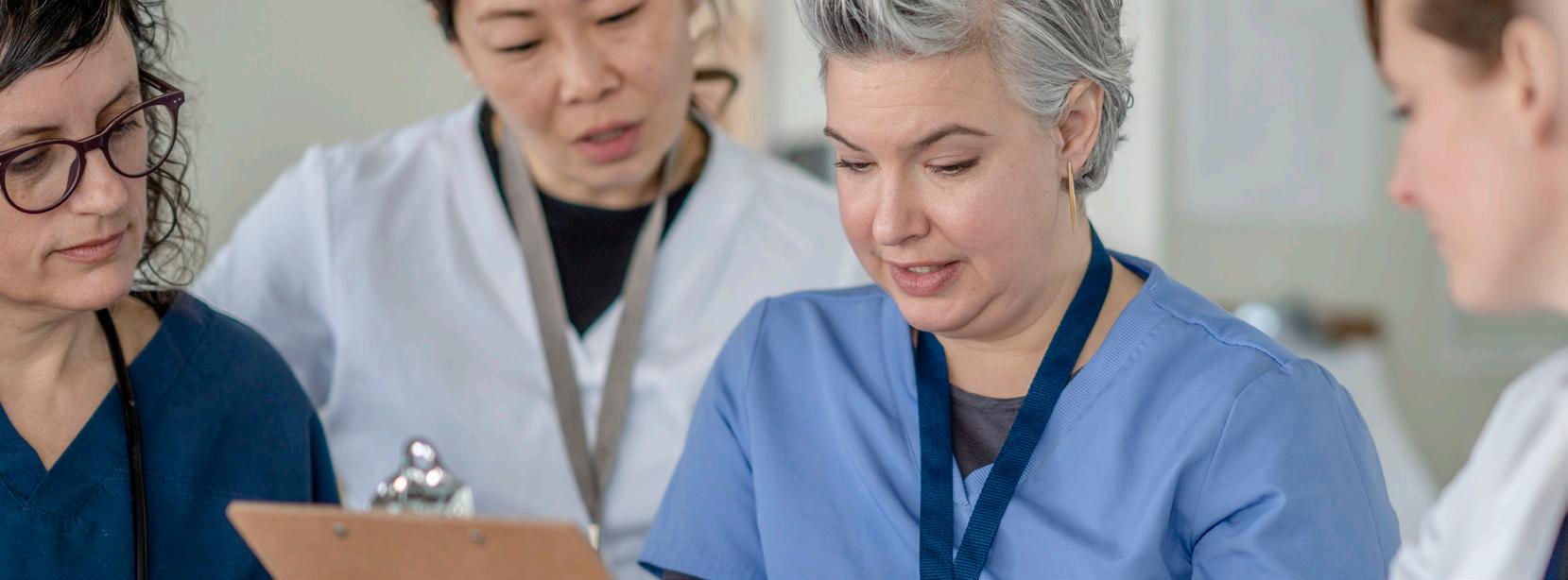
• Advanced Practice for Genetics
• Canadian Nurses Association
• Patient Educator Certificate
Critical Care Certification Exam Prep Course
• Medical Device Reprocessing Program
Certificate in Plain Language for Patient/Public Health Communication (APLC110)

Patients and clients are often given information, instructions, and directions during stressful moments. It is important that their understanding and interpretation of that information is clear and correct. If you provide written instructions or information to patients and clients, this unique online program will help develop your writing skills by reviewing plain language principles, providing coaching, and concluding with a reflective exercise and a final project. Topics covered include:
• Introduction to Plain Language
• Reflective Writing Exercise
• Plain Language Practice
• Final Project
• How to Plain Language Edit
Chiropodists have a unique scope of practice that is evolving as the profession matures in Canada. As the only institution in Canada with an entry-to-practice Chiropody program, Michener continues to partner with its graduates and practicing chiropodists across the country to offer exciting continuing education opportunities. For those who are small business owners, consider taking courses from our Clinical Management or Health Care Leadership certificates to keep you at the leading edge of practice.
CH804 Local Anesthesia and Injections for Chiropodists
CH806 Radiological Interpretation for Chiropodists
CHCP800 Clinical Pharmacology for Chiropodists and Podiatrists*
DE808 Foundations of Foot Management in Diabetes: A Holistic Approach
* Approved by the Council of the College of Chiropodists of Ontario.
In our workplaces we all have accountability for teaching and learning. This course will give you the tools to create a safe learning space by building your capacity in clinical supervision and teaching. A series of five online, self-paced interactive modules that focus on the following topics:
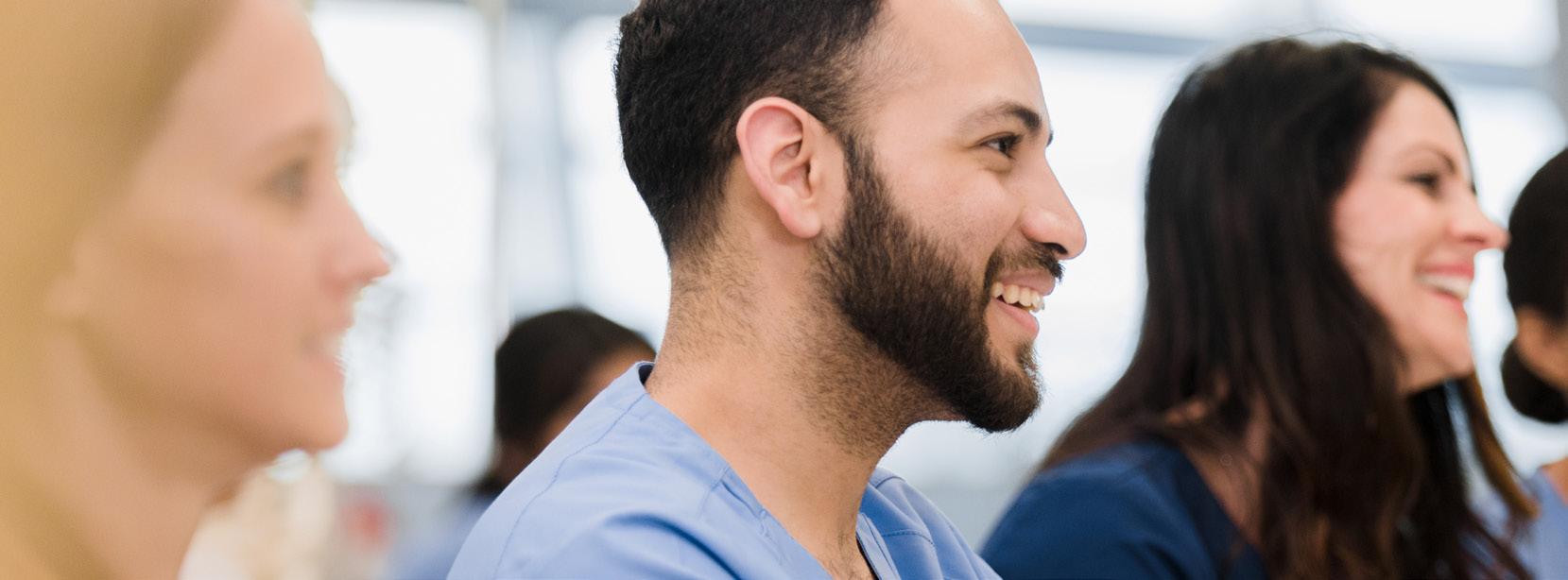
• Learner and Educator Diversity
• Coaching Learners
• Cultivating Optimal Learning Environments
• Feedback and Evaluation
• Principles of Adult Education and Competency-Based Learning
• Reflective assignment: Using the materials from the online modules and work experience, learners will illustrate how their knowledge can be integrated into practice.
Clinical research is a rapidly growing field, and with rapid growth comes consistent change and evolvement. These webinars will introduce clinical research professionals to recent trends in the field. Each online webinar will tackle an emerging topic through an interactive discussion led by industry experts. These webinars will also introduce learners to emerging topics but is not a prerequisite for the Clinical Research Certificate Program.
This hybrid course has an interactive online component followed by simulations, interactions with patient models, and constructive feedback. It will better prepare students for working with patients, patient families, employees, learners, or colleagues. Knowing how to approach individuals, what to say/do and what not to say/do during difficult and challenging conversations will give students the skills to build strength, empathy, and sympathy for the people they will need to interact with daily.
Digital health professionals operate within a complex, multi-faceted, and ever evolving health ecosystem that encompasses everything from the clinic to the legislature. Every decision can have an immense impact. We will take you behind the scenes of health care and expand your knowledge of how health care works by exploring several models with a keen focus on how Canada’s health care system provides care and supports digitally enabled systems in comparison to other systems. You will learn the fundamental vocabulary and concepts that are foundational to understanding the national and international health care landscape.
This course will be eligible as part of the Clinical Management Certificate Program, as well as an accepted credit toward the Digital Health and Data Analytics Program.
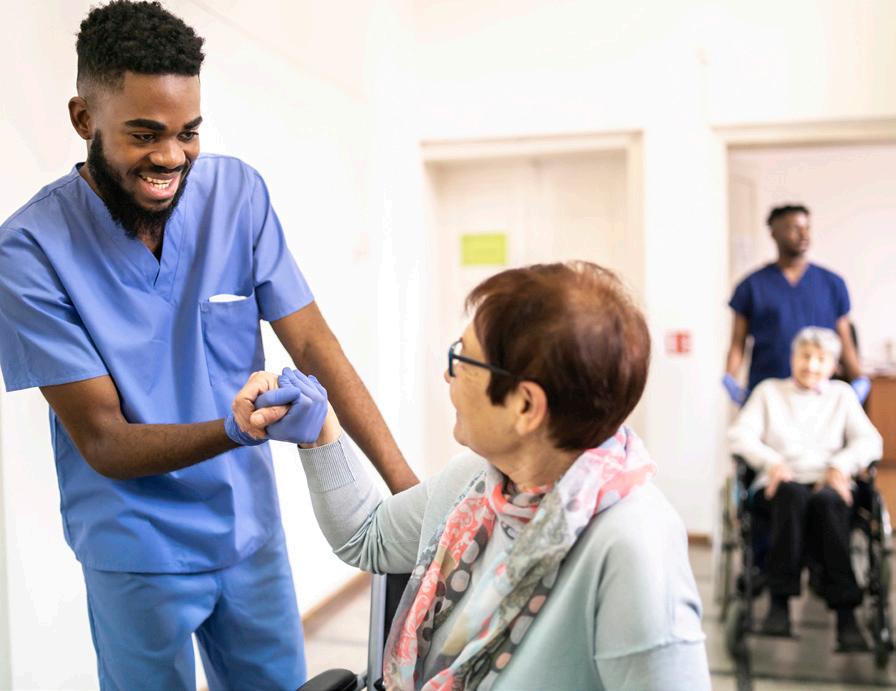

• Indigenous heatlh care
• Public and private organizations
• Comparative heatlh care systems
• Population health, including social determinants of health
• Structure and governance of Canada’s heatlh care system: local, provincial, and national
• Health economics: funding sources, key performance indicators, and digital tools
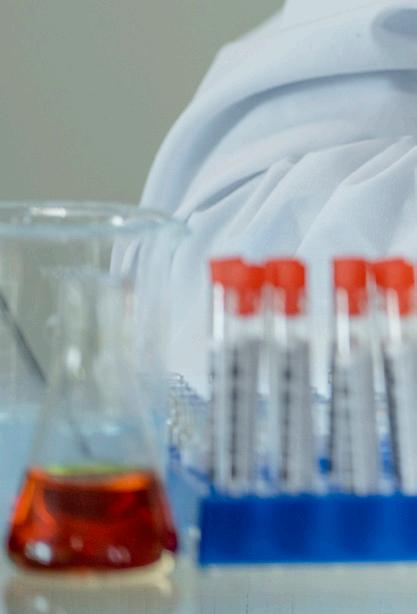
Superbugs, antibiotic resistance, and pandemic are words we are seeing more often than we should in our health care environment. Infection control and prevention is critical to successful and cost-effective health care. This online course covers the principles and practices of infection control and prevention and is ideal for those considering Infection Control Certification. This course has been redesigned for 2023-2024.
The course gives an overview of the basics required for learners to understand cancer, common treatments, persistent and late effects of treatment, and outpatient rehabilitation and survivorship care. A basic prerequisite course, it sets the foundation for future courses offered by the Cancer Rehabilitation and Survivorship Program at University Health Network.

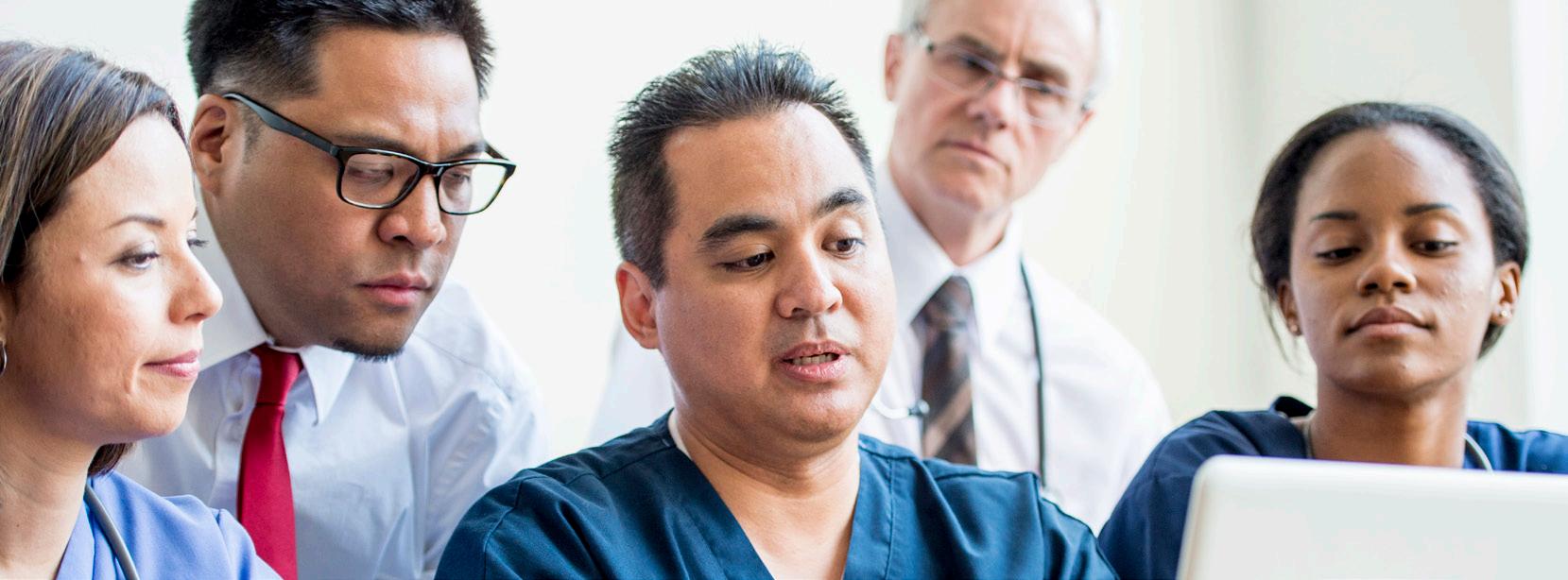
Michener’s bridging programs and courses are designed for experienced internationally educated health professionals (IEHPs) who wish to practice as licensed health care professionals in Canada. Before writing a licensing exam, it is recommended that IEHPs enroll in a bridging program. This will improve their chances of being licensed. Prior to applying for the programs, applicants need to be assessed either by the Canadian Society for Medical Laboratory Science (CSMLS) or the College of Medical Radiation and Imaging Technologists of Ontario (CMRITO) and obtain a Prior Learning Assessment (PLA).
In each of the programs and courses, students will review theory components and gain valuable simulated hands-on laboratory experience to help prepare them to write either the CSMLS, Sonography Canada, or the Canadian Association of Medical Radiation Technologists (CAMRT) certification exam.
These programs and courses are offered in the evenings and on weekends, and some may include an observership component at the UHN hospitals.

This bridging program is designed for internationally educated and experienced medical laboratory technologists whose training and work experience have been assessed by CSMLS and who have been issued a PLA Report.
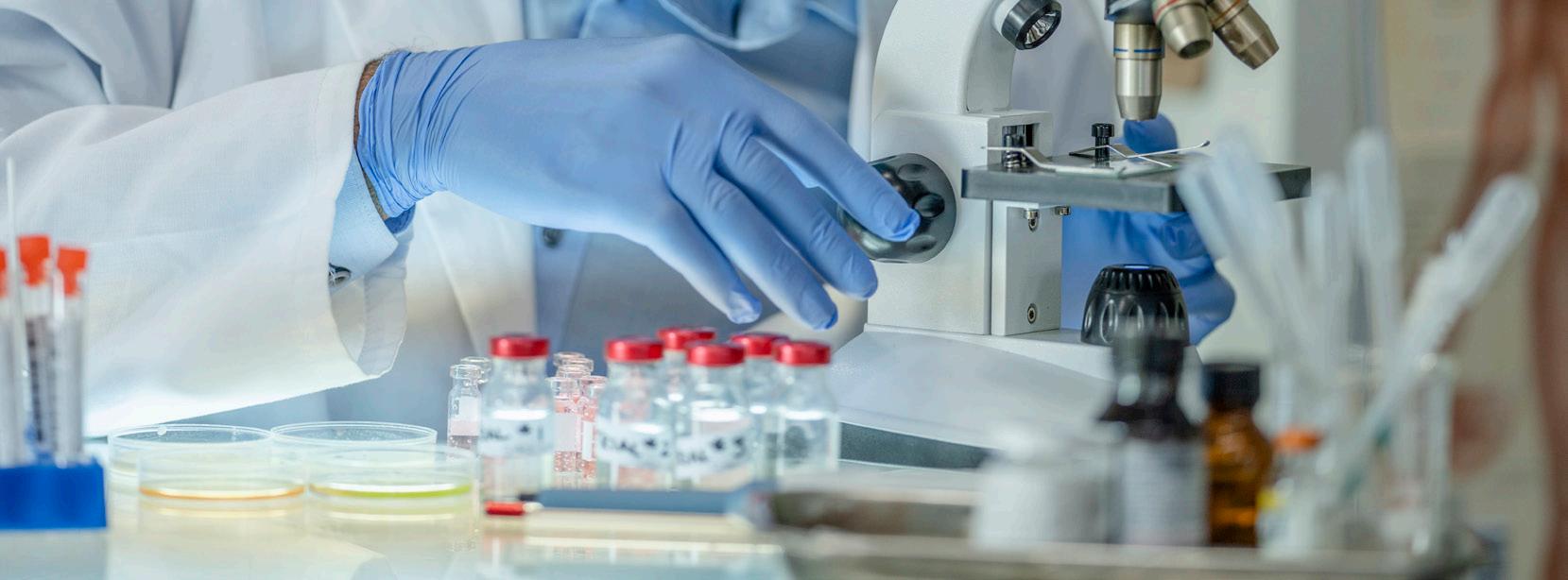
In this 16-week hybrid program, students gain simulated hands-on laboratory experience and theory review. The simulated laboratory experience will assist students in obtaining an understanding of Canadian laboratory practices.
“This program helped prepare me for the challenging certification exam (CSMLS) and refresh knowledge that I lost due to lack of practice. I would recommend this program to any international student that wants to gain an advantage in their career and find good employment in Canada.”
- Bernalyn G., Medical Laboratory Science Bridging Program - Student, 2022
This bridging program is designed for internationally educated and experienced medical radiological technologists whose training and work experience have been assessed by the CMRITO and who have been issued an Order by them.

In this intensive, 15-week program, students will review core theory components including basic skills assessment, and gain simulated laboratory experience in positioning labs, CT, PACS, Image Critique, and Interventional Special Procedures. Through online collaborative chats and assessments, students will obtain thorough preparation to write the CAMRT certification exam.

This bridging course is designed for internationally educated sonographers with recent education and experience, to help them prepare for Sonography Canada’s Canadian Clinical Skills Assessment (CCSA) exam.

In this comprehensive four-weekend hands-on ultrasound scanning evaluation course, students will have many opportunities to review and practice various imaging protocols, gain simulated sonography scanning experience in a laboratory setting, and be evaluated every weekend on their competency in performing procedures using correct sonographic scanning techniques. The five scanning evaluations, taking place over four weekends, will be conducted by certified sonographers. Weekly review of protocols, patient care, and procedures will be used to introduce the new topics, debrief the weekly scanning lab sessions and answer questions that arise from the lab experiences.
More information is available at W: michener.ca/bridging
T: 416-596-3101 ext. 3178/3147
E: bridging@michener.ca
TheMichener English Language Assessment (MELA) is a standardized English language proficiency test specific to the health care sector. This test is referenced to the Canadian Language Benchmarks (CLB). MELA scores are used by some post-secondary institutions and regulatory bodies as approved and acceptable demonstration of communicative competence to study or practice in English.
MELA measures English language communication skills in four areas: speaking, listening, reading and writing. The test takes about 3.5 hours.
MELA in-class sessions are offered on a monthly basis. Applicants can register to complete an English assessment in-person at The Michener Institute in Toronto through Michener’s Self-Service Portal. Each testing session is offered in a proctored environment.
MELA scores are used both for admission to all Michener full-time, part-time and bridging programs/courses as a diagnostic tool by program consultants, and for licensure by some regulators across Canada.

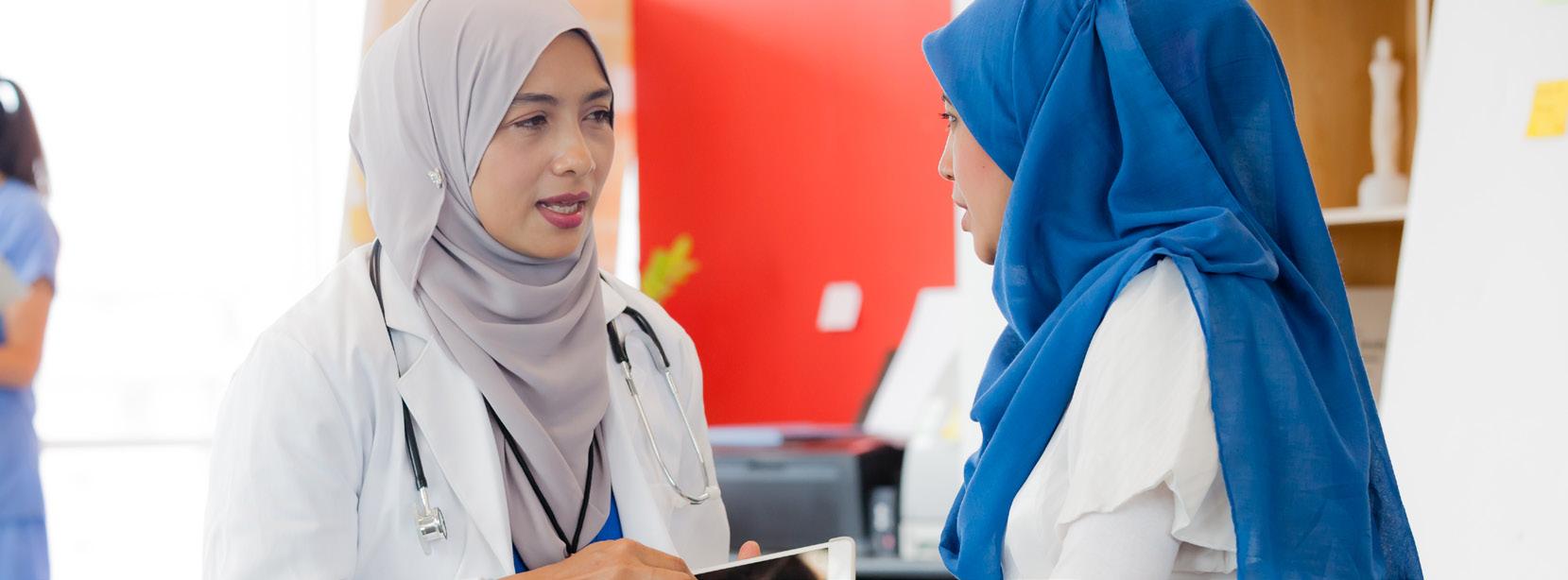
If you are an administrator from a regulatory body, college or university, and are interested in how to use MELA at your organization or for more information and general inquiries, please email mela@michener.ca

TheTemerty Advanced Surgical Education and Simulation Centre (Temerty Centre) proudly boasts the future of innovative surgical medicine. This space is a unique environment that will become a hub of advanced surgical simulation-based education and training for health care professionals. A stateof-the-art high-fidelity operating room (OR) simulation lab, 10-bay self-directed skills lab, telesimulation/telementoring rooms, and an innovation hub are just some of the features. We very much look forward to hosting you at the Centre, whether it be for a tour, educational programming, or honing your skills in one of our labs.

The self-directed skills lab includes 10 high-fidelity dry lab bays outfitted with the latest simulation technology, learning tools, and educational recording equipment along with 24/7 access. Current and future surgical leaders will be able to use this space to develop and hone their surgical skills leveraging a diverse array of task trainers, virtual reality (VR) modules, and robotics. An option is available for practice sessions to be recorded for later assessment and feedback by experienced surgeons and teachers to facilitate continuous learning and development. This space will be available to book if you are a year-three or-four medical student, a medical resident or a fellow from a participating surgical program. There will also be faculty-led group training sessions for internal and external learners.
The OR Simulation Lab provides an opportunity for faculty at UHN and externally, surgeon consultants, and our industry partners to create and deliver new high-fidelity surgical programming. These courses may include robotics as well as artificial intelligence. They can be specific to individual surgical specialties or be team-based. The opportunities are endless to create or participate in groundbreaking educational programming. With the ability to broadcast in and out of the OR Simulation Lab, we can connect with colleagues around the world to engage in robust teaching and learning sessions.
A space has been created for UHN clinical fellows to congregate and work on clinical research and education research projects. It is situated across the hallway from the Self-Directed Skills Lab where education research concepts can be trialed and tested. The Innovation Hub allows for collaboration and sharing of research to spark the development of new and transformative ideas. Our vision for this hub as it grows is to publish high impact, transformational research across all surgical disciplines in partnership with colleagues and/or industry both locally and globally.
An exciting new initiative, the Artificial Intelligence (AI) Academy is researching new concepts for machine learning and developing new software applications in surgical training and education. AI and machine learning enables the means for perception and cognition. Computer vision allows deep learning to cluster pixels and extract high-level features, achieving human-level recognition of objects and patterns. Computer vision in the surgical field has the power to improve operative performance. The Temerty Centre’s new programming will position us to become a collaborator and leader in this evolving field of innovation.
The highly anticipated Robotics Academy will train early career residents, fellows, practicing surgeons, and staff from across North America and around the world on existing and new innovative robotic procedures. The Academy will be able to develop a specific curriculum for the evolving roles in the operating room, expanding the capacity of your current team, and offer continued telementoring for trained surgeons. Whether new to the practice of robotics or wanting to advance your skills, there will be many programmatic opportunities available to learners!
Send a request to temertycentre@michener.ca to be added to our community for information on our website launch, virtual tours, programming, upcoming courses, and the arrival of our robotics.

Michener Continuing Education is keen to develop and deliver curricula for health professionals and learners where they work - locally, nationally, and internationally. In addition to running a series of courses that individuals can participate in, we can work with your organization to customize programming to meet your specific, local needs.
Many kinds of programs can be customized, including individual courses, workshops, and certificate programs. Our team can work with you to contextualize these courses for your own learning purposes. These programs can be delivered online or, in some instances, in-person at your organization.

Examples of customized programs include Diabetes Educator, Critical Care Nursing, and the Advanced Diploma in Ultrasound.
Continuing Education can support your organization to achieve its own strategic teaching and learning goals by helping your educators plan and deliver professional development activities. Our curriculum and faculty development specialists can work with your teams to identify learning needs and to build pedagogically sound learning activities and programs.
In addition to supporting education design, we can also partner with you to deliver existing educational programs through Continuing Education. This includes access to a learning management system, student registration and records, and marketing your learning activity. This is all achieved by the administrative/project support from the various administrators on our team.
For more information on the Program Development and Hosting Services or International Partnerships, email ce@michener.ca
Our International team in Continuing Education works with international organizations to deliver the above services. Michener programs can be customized to meet local practice standards to ensure sustainable translation of knowledge to practice in the learners’ home context.

MELA (on page 23) is a language assessment specific to the health care sector designed by the Michener Institute. If you are an administrator from a regulatory body, college, or university, and are interested in how to use MELA at your organization, please email mela@michener.ca
The Michener Institute of Education at UHN is a Royal College Accredited Provider of Continuing Professional Development (CPD). This means that the Royal College of Physicians and Surgeons of Canada has allowed Michener to issue Section 1 and 3 credits under their Maintenance of Certification (MOC) Program. We are the first institution that is not a medical school office of CPD, or a national medical specialty society or association, to be granted this responsibility.
Programs can be assessed for issuance of MOC credits to ensure you are putting forward the highest quality programs you can for your learners.
Michener accepts payment online, and by mail, fax, or telephone. Due to COVID-19, we are not currently accepting in-person registration or payment.
ONLINE (PREFERRED METHOD)
Find the course that interests you at michener.ca/ce and click Register Online.

TELEPHONE
Please have your Visa or MasterCard and the course code(s) ready. Call 416.596.3117 or toll-free 1.800.387.9066 (toll-free within Canada and outside the Toronto area).
FAX
Fax your completed registration form with payment by Visa, MasterCard or purchase order to 416.596.3180.
Mail your completed registration form with payment by certified cheque or money order (payable to The Michener Institute), Visa or MasterCard or purchase order to:
Registrar’s Office
The Michener Institute of Education at UHN 222 St. Patrick Street
Toronto, ON M5T 1V4
Canada
For registration in CE Programs at the UHN Hospitals, please contact the program of interest directly.


